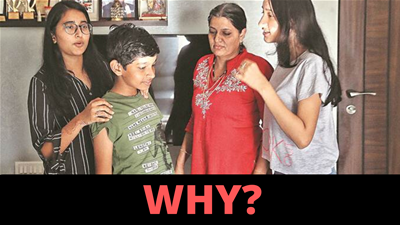 Last year in early 2019, shock waves entered the hair transplant industry after a businessman from Mumbai died as a result of a hair transplant procedure. Shravan Kumar Chaudary was the man who passed away in March of last year. His family and friends were devastated, and so many questions were left unanswered, how could this happen? Especially since FUE is considered a minimally invasive procedure. Now, the family can reach closure after the so-called physician who was supposed to be caring for Mr. Chaudary got booked. Why did he die? Could it have been prevented? Keep reading.
Last year in early 2019, shock waves entered the hair transplant industry after a businessman from Mumbai died as a result of a hair transplant procedure. Shravan Kumar Chaudary was the man who passed away in March of last year. His family and friends were devastated, and so many questions were left unanswered, how could this happen? Especially since FUE is considered a minimally invasive procedure. Now, the family can reach closure after the so-called physician who was supposed to be caring for Mr. Chaudary got booked. Why did he die? Could it have been prevented? Keep reading.
The Plan For The Procedure Failed, But Why?
According to official reports, Mr. Chaudary was supposed to have an FUE procedure of 9,000 grafts. For this procedure, Mr. Chaudary paid 500,000 rupees, which equals to about 7,022.52 USD. Mr. Chaudary had the hair transplant on a Thursday, and by Friday, his pain was so severe that he began to complain to his so-called physician who gave him a cocktail of drugs. Unfortunately, by Saturday, Mr. Chaudary passed away.
First of all, let's dissect and discuss the overall treatment and plan. A surgical procedure involving 9,000 grafts is absurd, especially with FUE. Not only can the patient run into severe health problems, but the donor capacity and supply cannot withstand such a high number of grafts. This physician did not have the patient's safety or best interests in mind.
Dr. Vikas Halwai Booked on Medical Negligence
Dr. Halwai, the hair transplant surgeon for Mr. Chaudary, was arrested and booked for causing death by negligence. This news comes just two weeks after an expert committee of J J Group of Hospitals indicated that the cause of death was due to negligence. Dr. Halwai was booked under section 304 A (causing death by negligence) under the Indian Penal Code (IPC).
Senior Inspector Kishor Sawant of the Saki Naka police station said this: "Our officer also visited the dean of J J Hospital to understand the report precisely." This case received a lot of publicity due to the shocking details that emerged after Mr. Chaudary passed away.
What Happened Leading Up To The Death of Mr. Chaudary
On Thursday, March 7th of last year, Mr. Chaudary returned from his procedure, feeling ill and with severe pain. Unfortunately, no one knew he was going to have this procedure, as he wanted to keep it a secret. By Friday morning, on March 8th, he complained to Dr. Halwai of his constant pain. Dr. Halwai proceeded to administer a series of painkillers and antibiotics in hopes that he would feel better; from there, he went to the Dalvi Nursing Home. He was discharged later that day after being given painkillers.
On March 8th, late in the evening, his family rushed him to the Hiranandani hospital after his head had become swollen and nearly double the size. According to official reports, there was a delay in referring Mr. Chaudary for a higher level of care, which was a direct result of negligence from the physician. According to the committee, the surgeon did not perform the standardized tests, including skin tests before performing the procedure. Unfortunately, on March 9th, Chaudary passed away. The cause of death reported being from an anaphylactic reaction to the anesthesia. The official report cited 13 instances where the physician was found to be negligent and did not follow the proper protocol before initiating the procedure.
Conclusion
Hair transplant surgery is a safe and minimally invasive procedure that is very safe. However, a trained physician must be present in case of a medical emergency, and such was the case with Mr. Chaudary. Unfortunately, these situations continue to arise and make the headlines, because patients are chasing the cheapest surgery, instead of the best results.

